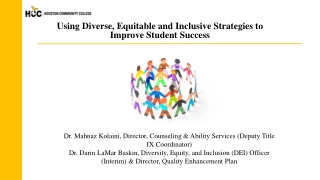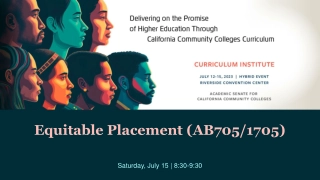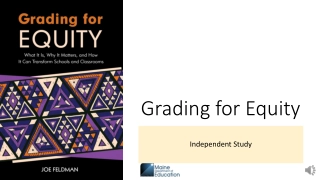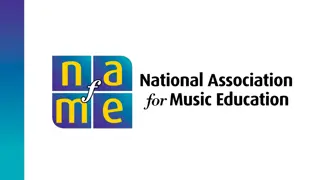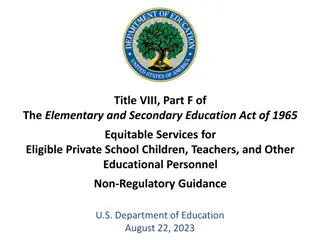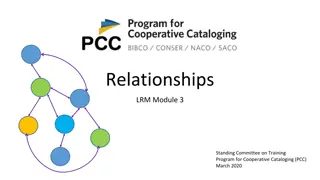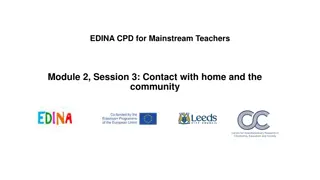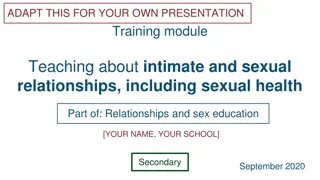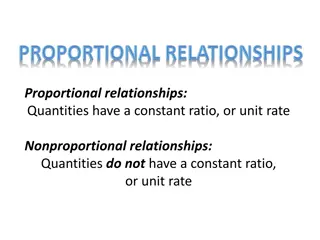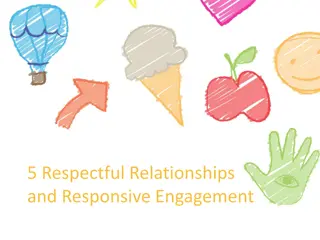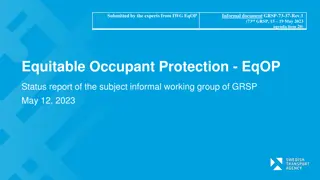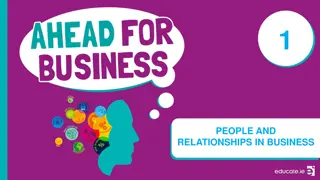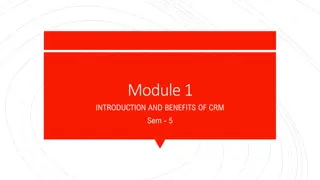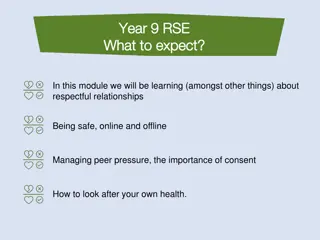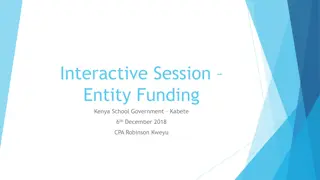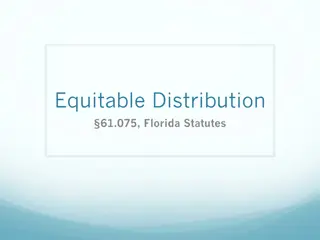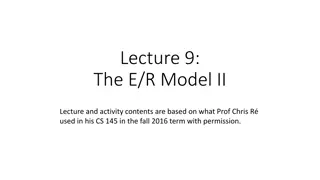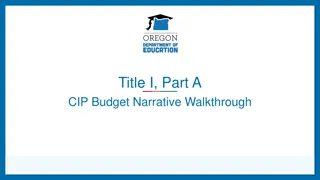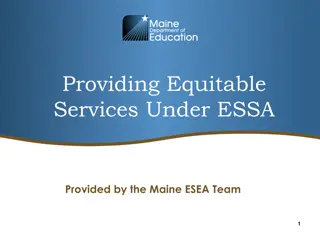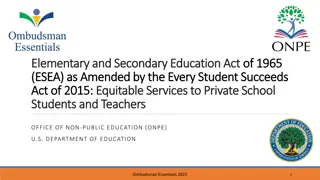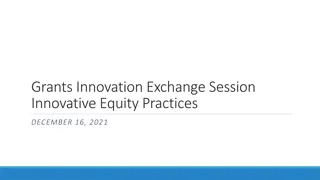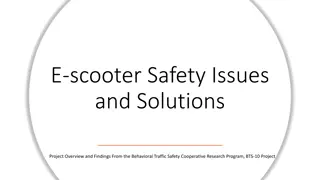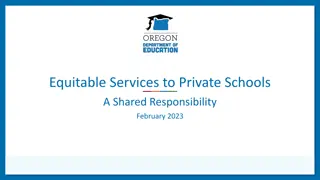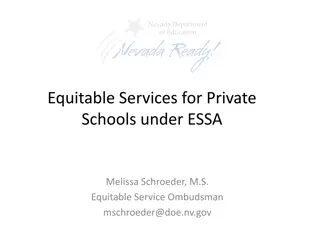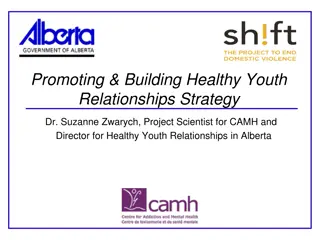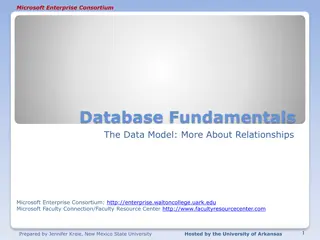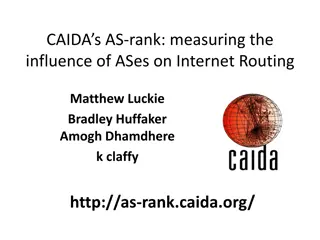Using Diverse, Equitable, and Inclusive Strategies for Student Success
How Houston Community College implements diverse, equitable, and inclusive strategies to improve student success and create an inclusive learning environment.
0 views • 27 slides
Equitable Placement Strategies for Student Success
Explore the impact of AB 1705 on student placement and enrollment, as outlined by the California Community Colleges Chancellor's Office. Join the session to discuss challenges, share successes, and strategize innovations to enhance student success and close equity gaps. Learn about the ASCCC paper o
0 views • 16 slides
Grading for Equity Independent Study Program
Explore the concepts of equitable grading with a focus on historical context, bias recognition, and motivational elements. Join thought partners in studying Joe Feldman's book to transform grading practices for all students. Engage in live facilitated discussions and sessions to delve into the princ
3 views • 11 slides
ICC Renewable Energy Access Workshop Overview
The ICC Renewable Energy Access Plan workshops aim to discuss the implementation of CEJA (Climate and Equitable Jobs Act), focusing on clean energy goals and renewable energy transitions in Illinois. The workshops provide insights, analysis, and opportunities for stakeholder feedback to ensure a jus
3 views • 31 slides
NAfME: Empowering Music Educators for Equitable Access
Collaborate with NAfME, a supportive community advocating for equitable music education access. Experience a diverse association where everyone is valued, heard, and included in their musical journey. Discover the transformative power of music, connecting people across cultures and time, fostering c
2 views • 19 slides
Importance of Relationships in Professional Learning Framework
Relationships are crucial for the wellbeing, learning, and behavior of Scotland's learners. This resource, designed by @ESInclusionTeam, emphasizes the significance of fostering strong, trusting relationships between educators and learners. It provides slides for facilitating professional learning s
3 views • 21 slides
Equitable Services for Private School Children and Teachers
The Elementary and Secondary Education Act of 1965, specifically Title VIII, Part F, outlines the provision of equitable services for eligible private school children, teachers, and other educational personnel. This non-regulatory guidance emphasizes the importance of ensuring fairness and support f
4 views • 32 slides
Understanding Relationships in Bibliographic Universe
Relationships in bibliographic universe connect entities, providing context through entity-relationship models like IFLA LRM. Learn key terms, principles, and diagrams to identify relationships defined in IFLA LRM. Explore domains, ranges, inverse, recursive, and symmetric relationships. Enhance you
0 views • 23 slides
Enhancing Education Through Family and Community Engagement
Inclusive and equitable education is achieved through effective family and community engagement, which positively impacts student achievement. Engagement dimensions include providing a secure environment, intellectual stimulation, and active participation in school activities. Building equitable rel
0 views • 8 slides
Training Module on Intimate and Sexual Relationships in Secondary Schools
This training module on intimate and sexual relationships in secondary schools covers teaching strategies, safeguarding, and examples of good practice. It aims to enhance educators' confidence in addressing intimate relationships and sexual health, aligning with statutory guidance. The module emphas
0 views • 105 slides
Importance of Relationships & Sex Education in Primary Schools
Effective Relationships and Sex Education (RSE) in primary schools is crucial in addressing the changing dynamics of the modern world. With updated curriculum guidelines, children are taught age-appropriate information on growth, reproduction, and relationships. RSE aims to equip students with essen
0 views • 17 slides
Understanding Proportional and Nonproportional Relationships in Mathematics
Proportional relationships involve quantities having a constant ratio or unit rate, while nonproportional relationships lack this constant ratio. By examining examples such as earnings from babysitting and costs of movie rentals, we can grasp the differences between these two types of relationships.
2 views • 6 slides
Building Respectful Relationships and Responsive Engagement in Early Childhood
Responsive engagement in early childhood education involves building respectful relationships with children and families, emphasizing their strengths and interests. Two case studies highlight the importance of being attuned to children's needs and promoting positive relationships between parents and
0 views • 20 slides
Progress Report on Equitable Occupant Protection Working Group
The Informal Working Group on Equitable Occupant Protection (IWG EqOP) has made significant strides in enhancing the safety and protection of a diverse population, focusing on passenger car occupants. The IWG's workplan includes tasks related to regulatory changes, addressing diversity issues, and a
0 views • 12 slides
Understanding Relationships in Business: Stakeholders, Dynamics, and Cooperation
Exploring the intricate web of relationships in business, this content delves into the dynamics between stakeholders such as workers, managers, entrepreneurs, investors, and customers. It discusses the nuances of cooperative and competitive relationships, dependent relationships, and dynamic interac
0 views • 23 slides
Equitable Grading Practices: Pillars, Zero Policies, and Minimum Grading
Explore the three pillars of equitable grading: accuracy, bias-resistance, and motivation. Learn about the impact of giving zeros on student grades and discover alternative approaches. Delve into the concept of minimum grading and how adjusting grading scales can enhance student engagement and succe
1 views • 48 slides
Understanding Customer Relationship Management (CRM)
Customer Relationship Management (CRM) is crucial for businesses to build and maintain relationships with their customers. It involves collecting and analyzing customer data, implementing strategies to meet their needs, and fostering long-term relationships. CRM benefits both businesses and customer
0 views • 30 slides
Exploring Complex Relationships Through Literary Analysis
In the essay reflections provided, the complex relationships and dynamics between Hector & Andre, as well as Sadako, Mr. Endo, and Harry are analyzed through literary elements and techniques. The narrative delves into the emotions, conflicts, and various communication methods that reveal the intrica
1 views • 6 slides
Understanding Healthy Relationships in Year 9 RSE Module
Explore topics on respectful relationships, online safety, peer pressure, consent, and self-care in the Year 9 RSE module. Learn about healthy and unhealthy relationships, identifying signs, and providing advice in various scenarios. Engage in activities to understand the importance of positive conn
0 views • 23 slides
County Government Revenue Sources and Allocation in Kenya
The county government revenue in Kenya is sourced from various avenues such as property rates, entertainment taxes, and service charges. Equitable share forms a significant part of this revenue, allocated based on a formula developed by the Commission on Revenue Allocation. The funds given through t
0 views • 14 slides
Rowan University DEI Strategic Action Plan Overview
Rowan University emphasizes diversity, equity, and inclusion (DEI) through its strategic action plan, aiming to create a more inclusive and equitable campus community. The plan involves assessing departmental strengths and areas for improvement, setting goals and objectives, and engaging all faculty
1 views • 15 slides
Private Schools: CARES Act Equitable Services Overview
This session introduces and discusses the implications of the CARES Act Equitable Services for private schools, including a timeline of events, court decisions, and implications for districts and private schools. The presentation covers the requirement for LEAs to provide equitable services to non-p
2 views • 12 slides
Understanding Equitable Distribution in Florida
Equitable distribution in Florida, governed by statutes 61.075 and 61.076, determines the fair division of marital assets and liabilities in divorce cases. Key considerations include identification, valuation, distribution presumption, and justification for unequal distribution. Assets are classifie
0 views • 28 slides
Understanding Equitable Services to Independent Schools
Explore the guidelines for providing federal education aid to students in need attending independent schools, as mandated by the Elementary and Secondary Education Act. Learn about eligibility criteria, consultation processes, and funding allocation. Discover the complexities of Title I eligibility
0 views • 46 slides
Understanding E/R Model Considerations and Relationships
Explore the E/R model considerations and relationships like multiplicity, multi-way, conversion to SQL, and more. Learn about modeling purchase relationships and the significance of arrows in multi-way relationships. Understand the challenges in expressing constraints like every person shopping at m
0 views • 29 slides
Understanding Title I, Part A CIP Budget Narrative Requirements
This walkthrough explains the purpose of Title I, Part A funds, focusing on providing equitable education opportunities and addressing achievement gaps for students in need. It covers important aspects such as the Supplement Not Supplant rule, federal funds timeline, and consultation for equitable s
0 views • 26 slides
Equitable Services Requirements and Guidelines under ESSA
Equitable Services Requirements and guidelines under ESSA outline the responsibilities of education officials, ombudsman, and private school administrators to ensure fair distribution of federal funds. The ESEA Team in Maine works to uphold Title I, Part A, Migrant Education, Teacher Quality, Englis
0 views • 56 slides
Education Act of 1965 and Equitable Services for Private School Students
The Elementary and Secondary Education Act (ESEA) of 1965, as amended by the Every Student Succeeds Act in 2015, ensures equitable participation of private school students and teachers in federal education programs. The Office of Non-Public Education (ONPE) oversees this initiative, providing resour
0 views • 30 slides
Enhancing Equitable Health Product Roll-out in Low- and Middle-Income Countries
Strategies to enhance equitable access to health products in low- and middle-income countries will be discussed at the AIDS 2022 conference, focusing on key factors such as availability, acceptability, affordability, accessibility, and quality. The Medicines Patent Pool aims to increase access to in
0 views • 14 slides
Understanding Trust and Equitable Charges in Property Law
Trust and equitable charges in property law involve a legal obligation where the property holder manages the property for the benefit of another person. This trust relationship consists of elements like legal title, trust property, and beneficiaries. The creators of a trust can be referred to as set
0 views • 25 slides
Grants Innovation Exchange Session on Equitable Award Practices
Laura Watson and Lynn Rhinehart from the Department of Labor, along with Lynn Overmann from the USDA, discuss the impact of eligibility criteria on equitable outcomes of awards. They also share innovative practices related to the recent Controller Alert and OMB guidance, emphasizing the inclusion of
0 views • 12 slides
E-scooter Safety Issues and Solutions Project Overview
E-scooter safety research project BTS-10 investigated usage patterns, safety concerns, injury data, and safety management practices. The project aimed to identify key safety issues, current practices, and future research needs, emphasizing the importance of a safe and equitable transportation system
0 views • 38 slides
Comprehensive Relationships, Sex, and Health Education Syllabus Presentation
This syllabus presentation covers six main areas including relationships, consent, human sexuality, online safety, and sex education. It aims to educate students on understanding healthy relationships, consent in all types of relationships, human sexuality, online safety, and sex education facts and
0 views • 12 slides
The Importance of Effective Communication in Healthy Relationships
This module from the Welcoming Warriors Home Manual focuses on helping veterans understand healthy relationships and effective communication skills to nurture positive connections with their partners. It addresses conflict resolution, cultivating healthy relationships, repairing relationships after
0 views • 11 slides
Equitable Services to Private Schools: Shared Responsibility and Requirements
Equitable services to private schools involve federal programs supported by tax dollars, allowing all children and teachers access to various educational programs. Private schools must be not-for-profit to qualify. Consultation plays a crucial role in reaching agreements on providing equitable and e
0 views • 17 slides
Understanding Equitable Services for Private Schools under ESSA
Equitable Services for Private Schools under ESSA ensures fair educational benefits for private school children, teachers, and personnel compared to public schools. Requirements cover various programs like Title I and Title IV, with an ombudsman role to enforce compliance. ESSA mandates separate pro
0 views • 29 slides
Understanding and Promoting Healthy Youth Relationships for Preventing Domestic Violence
Creating transformational change through primary prevention strategies is crucial to ending domestic violence. The SHIFT project focuses on stopping first-time victimization and perpetration by promoting healthy relationships, families, and communities. Initiatives like The Fourth R: Healthy Relatio
0 views • 29 slides
Tips for Being a Supportive and Equitable Debate Judge
When judging a debate, it is crucial to be supportive, equitable, and respectful of all participants. Providing opportunities for debaters to state their pronouns and important information, avoiding favoritism, and embracing diversity are key aspects of being a good judge. Actively listening, taking
0 views • 39 slides
Understanding Microsoft Enterprise Consortium Database Relationships
Explore the fundamentals of data models, relationships, and cardinality in the Microsoft Enterprise Consortium Database. Learn about entities, attributes, identifiers, and the different types of relationships like one-to-many, many-to-many, and one-to-one. Gain insights into the degree of relationsh
0 views • 10 slides
Understanding AS Relationships in Internet Routing
Exploring the complex ecosystem of AS relationships in Internet routing, the CAIDA's AS-rank project measures the influence of ASes through customer cones and validates the relationships for accuracy. The ground truth summary provides insights into the types and distribution of AS relationships, hig
0 views • 14 slides
